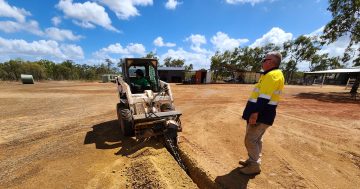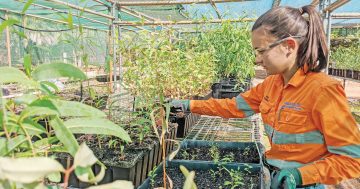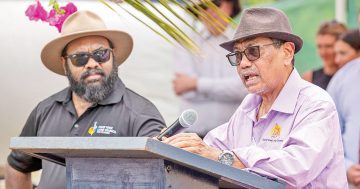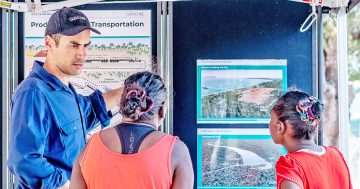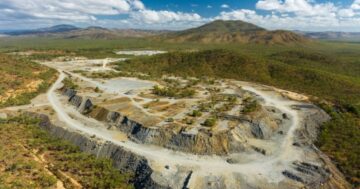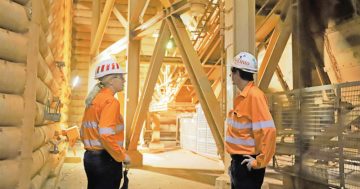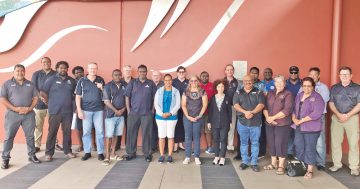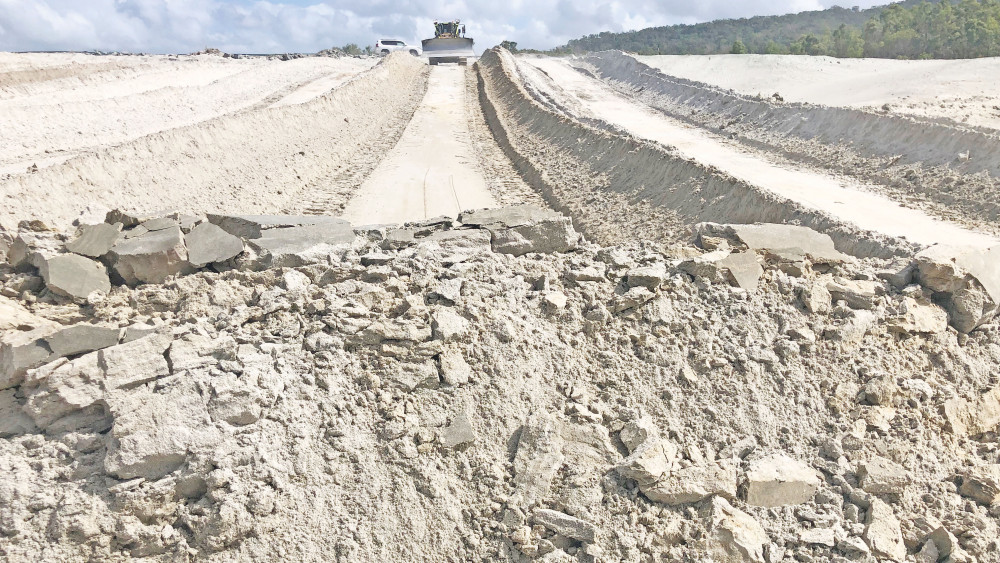
NATIVE plants and a safe, usable site will eventually replace the abandoned Collingwood Tin mine site near Cooktown with a partnership between Traditional Owners and the state government.
Specialists from the Department of Resources have been working closely with the Jabalbina Yalanji Aboriginal Corporation on the $7.5 million project to make the site safe and usable again.
“It’s so important to have Traditional Owners involved in the process of returning the land to a natural state,” Member for Cook Cynthia Lui said.
“Work is progressing well to deliver a safe, terraced site and a stable and secure tailings dam revegetated with native plants.
“Importantly, the remediation work is expected to create up to 13 full-time jobs across the life of the project; part-time or short-term work for an estimated 50 people; and additional flow-on work through local services and suppliers.
Ms Lui said the rehabilitation of the Collingwood Tin mine site was an example of the state government creating jobs.
“The on-site crew has been moving tonnes of tailings – the crushed rock and waste material left behind after minerals have been extracted,” she said.
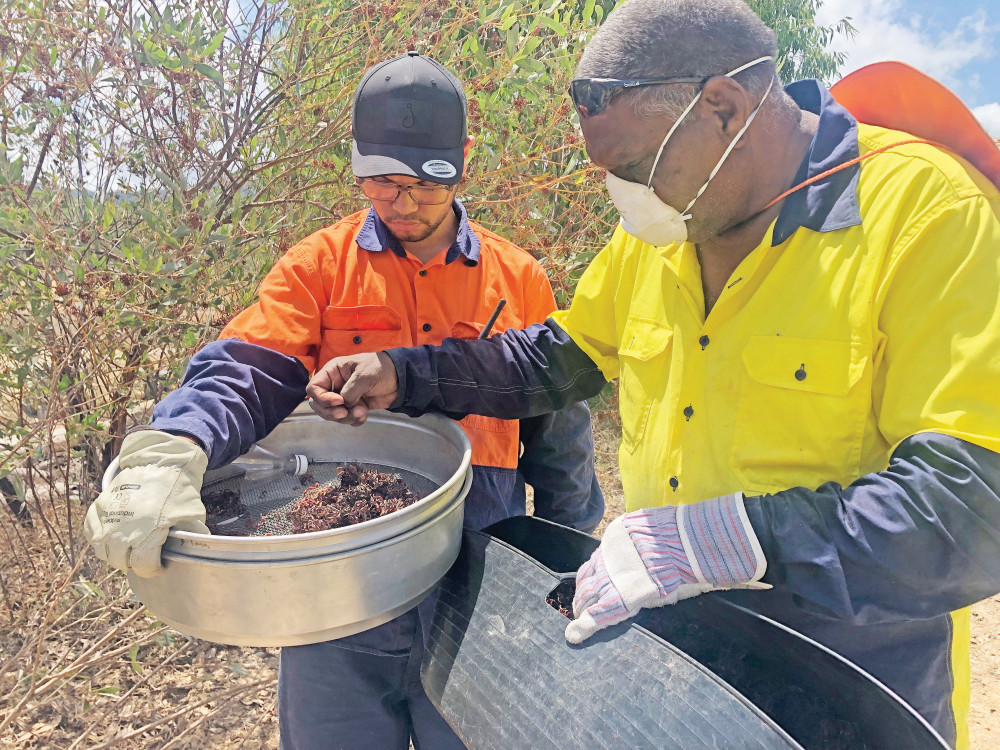
Patrick Yeatman and Horace Friday collect seeds that will be planted on site to help with the rehabilitation of the old Collingwood Tin mine site.
“Once the tailings are reshaped, they will be capped, and the area topsoiled and revegetated with native plants from seeds that the Traditional Owners have collected locally.”
The former tin mine, 35km south of Cooktown, operated for three years from 2005 to 2008.
The operator went into liquidation in 2015, leaving the government to make the site safe.
Work to date has included shutting off a 200-metre-deep ventilation shaft and ensuring there are no uncontrolled releases of water into the Annan River catchment, which provides Cooktown’s water supply and feeds into the Great Barrier Marine Park.
A grate is installed at the underground mine entry to prevent public access, while still allowing access for animals, including the endangered large-eared horseshoe bat.
Other work has included the demolition and removal of the abandoned processing plant and equipment, remediation of the former drill core area and significant work on the high-voltage electricity network to maintain power to the JYAC Aboriginal Rangers office on site.
Work recommences later this month, with replanting scheduled for later this year and early 2023. The project is expected to be completed by June next year.

